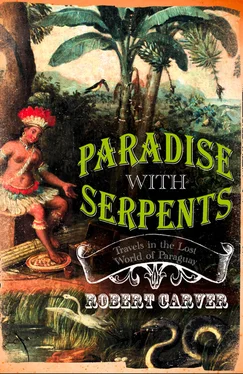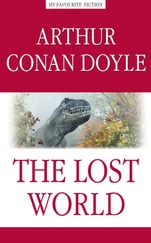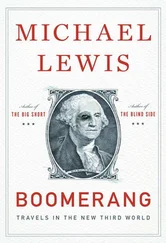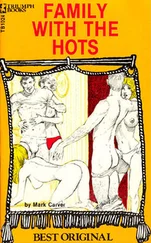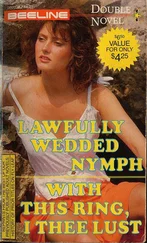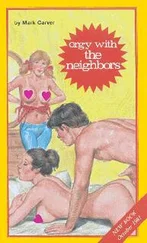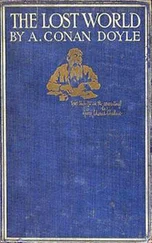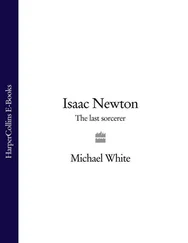That there had once been order and a degree of security was evident from the style of houses put up during the stronato . These were US-style villas or suburban bungalows with large windows and low fences, symbols of trust in the security the regime provided. Under Alfie a virgin could walk the streets of Asunción dressed in gold jewellery and risk no harm, people had told me, people who had opposed the old regime and hated the dictatorship. Then, everyone had been terrified of falling into the hands of the police. Now people had rights, but no duties. Improvised security precautions had been tacked on to these vulnerable homes of the Pax Stroessner era – iron grills on the doors and windows, razor wire on hastily erected high walls and steel fences, video security cameras and snuffling, whining guard dogs kept on short rations to make them hungry for burglar flesh. In all this I was again reminded of Los Angeles, with its neat notices in the gardens of dinky gingerbread cottages promising an armed response if you trod a step across the lawn.
The amenities of a capital city were absent in Asunción. There were no proper bookshops, only kiosks selling comics and religious kitsch. You could buy no foreign newspapers at all, anywhere. There were no coffee shops or bistros where you might relax in comfort and security. The park benches were filled with sleeping men, some of them police in uniform, and the parks themselves stank of human piss and shit and were full of rubbish. Concerts, recitals, theatrical peformances, art exhibitions were all absent; the few cinemas showed kung fu movies or sadistic pornography. There was one theatre show, I discovered, the English play The Vagina Monologues . It was a Buenos Aires production, and for macho Argentina the title had been redubbed The Secrets of the Penis . This was too daring for staid Asunción, and here it was running under the title The Secrets of the Male .
Although there were a few lurking stray dogs, with claw marks on their backs from unsuccessful vulture attacks, there were no stray cats at all – they were no match for the beady-eyed, telegraph-wire-perching birds of prey. A cat would only last a matter of minutes out of doors, I had been told; those that existed in Paraguay led cosseted, prison-like existences indoors, not unlike their owners. Small babies were never allowed out for the same reason – they would be snatched up from pram or cradle and torn apart and devoured in an instant. The man lost and waterless in the Chaco always saved the last bullet for himself, before the vultures tore his eyes out while he was still alive, but too far gone to defend himself. In the centre of town, by day, the police were about in force, lounging like the rest of the population, but kitted up in macho uniforms, with low-slung, black-holstered pistols. This fearsome image was assuaged to a great extent by the policemen’s girlfriends, who also hung about with them, talking softly and weaving roses and other flowers into their caps and uniforms with one hand, while holding their beaux’ hands with the other. These clumps of cops and lovers were particularly thick around the government buildings on the main plaza. One coup d’état had already been foiled and the Vice-President had been assassinated. No one knew who did it, so the authorities called in Scotland Yard, perhaps hoping that Sergeant Lestrade or Sherlock Holmes would be sent out to uncover the truth. From time to time passion would overcome the couples of policeman and lover, and they would detach themselves from the rest and make for a hot-bed hotel where you could hire a room by the hour. There was a constant traffic of heavily armed cops up and down the stairs of these establishments. As they hadn’t been paid for so long I assumed they had a good credit rating. It was probably not a good idea to deny tick to a Paraguayan cop.
In the centre of town, on the main street, was a ranchero’s outfitters; here you could kit yourself out completely with everything you needed to take on the Paraguayan estancia – leather chaps, saddles, bridles, lassos, boots, bombacha baggy trousers, saddle bags, revolver and rifle holsters, horseshoes, spurs and all manner of wide-brimmed cowboy hats. I spent ages in this shop, to the evident puzzlement of the assistants, fingering and peering at all these articles, which were laid out in piles on wooden shelves. The general ambience of the store was Tucson, Arizona, circa 1880. Unfortunately, I am large and Paraguayan gauchos are small, otherwise I would have equipped myself with one of almost everything. All the items were handmade and had a pleasingly rustic, archaic quality. If you wanted to set up a Wild West museum this would be the store to head for. Before Stroessner there had been few metalled roads, and Asunción was simply a cow-town; cowboys rode in from the Chaco, and tethered their horses at hitching rails in the capital. This shop must have dated from that era, but clearly still did enough business to stay alive, although I never saw anyone apart from myself and the staff in the place. Next door was the Café des Artistes. This had a vaguely Art Nouveau decor with marble top tables, red plush seating, a lot of mirrors, but no visible artistes, or indeed any clientele at all. The armoured, bullet-proof plate-glass windows and protective iron bars outside suggested that the absinthe-sipping decadents in floppy ties and Oscar Wilde-style velvet jackets had yet to come into their own in Asunción, or perhaps they’d all been gunned down in the civil war pre-Stroessner. It was always empty when I passed. Maybe all the artistes had left town or been shot up by the clientele of the cowboy joint next door. I liked the absurd juxtaposition of the two establishments, one pure 1880s, the other authentic 1890s, Arizona and Paris respectively: only in Asunción, surely, could you get a new set of spurs and a stetson with a rattlesnake skin swaggerband, then amble – or mosey, rather – next door for a few shots of Baudelaire, flowers of evil, and la sorcière glauque , as the fin de siècle crowd used to call the genuine sea-green wormwood absinthe, which, of course, though banned in France itself you can still buy in Paraguay. The waiters in the Café des Artistes were always asleep, heads on the bar, unless they’d been hitting the opium-laced papier mais cigarettes too hard, of course, and were actually on Cloud Nine.
All around the town stood tight-buttocked young men with rags hanging out of their back pockets, beckoning energetically to passing cars to come their way. In some cities of the world these might have been taken to be gay hookers, trolling for trade: in Asunción they were parking touts. They owned or rented a couple of parking bays on the street, informally, that is, from the police or the local cacique . These they deftly waved drivers into with their rags, promising to look after the car while the owner was away, in return for a few guarani notes. It was the smallest possible of all small businesses. And all across the city there were furtive men, furtively pissing. They pissed beside parked cars, in the parks behind trees or in the rubbery shrubbery, against walls, in the sandy soil, down the blocked drains, against car wheels, anywhere. ‘ ¡No Pisar! ’ read the signs impaled into the grass lawns outside the Pantheon of Heroes, but they pissed there too, in spite of the Honour guard in full-dress uniform with Mauser rifles and fixed bayonets. Pisar means ‘step’ in Spanish, not ‘piss’, so the signs really meant ‘don’t walk on the grass’, but the synchronicity was too great. The reason for this great, national incontinence was the compulsive, endless drinking of yerba maté, once known as Jesuit tea, by most of the adult male population. Made from the cut-up leaves of the ilex tree, to which hot water is added, maté is a mild narcotic and is widely drunk throughout the southern cone, nowhere more so than Paraguay, where the majority of the crop is grown and harvested. The bitter, dark green leaves are put in a pot, cup or more usually a gourd known as a maté: hot water is poured on and the drink sucked up through a metal straw known as a bombilla . For a cold brew, ice or just cold water is added to the leaf, and the drink is then known as tereré . The drinking of maté is a bonding ritual for Paraguayan men: one man will brew up, slurp up a draught, add more water, and pass the gourd round to his mate, as it were. Each man follows suit – slurp, add water, pass on. As TB and other saliva-conducted diseases are rife, this isn’t all that gets passed on, of course. Never mind, the macho Paraguayan male doesn’t: police on duty drink it, beggars drink it, civil servants, businessmen, politicians, shopkeepers, truck drivers – every Paraguayan male is constantly drinking the stuff all day long. You saw thermos flasks for sale everywhere, usually brightly coloured and made in China, essential for the brewing process. Men carried the complete gear around with them, thermos on shoulder strap, packet of leaf maté, spoon, gourd and bombilla . People didn’t go into cafés to drink it, they just made it up from their own kits wherever they happened to be – in offices or shops, on buses or in queues, squatting on the pavement or slumped in a park. The end result was a city full of men pissing all the time. In a shop selling religious icons I had noticed an almost life-size painted carving in wood of a Spanish friar, perhaps a Jesuit of yore, dressed in an old-fashioned ecclesiastical gown and a tonsure on his head. He had a straw in his mouth, and was sucking on what looked like a large, pear-shaped brown turd, but which in fact on closer inspection was a maté gourd. ‘The reason rioplatano men are so useless is all down to maté drinking,’ Alejandro Caradoc Evans told me one evening in the bar of the Gran Hotel, which was where he spent most of his waking hours. ‘They are all mother-dependent, not properly weaned, and addicted to the tit. The maté habit enables them to suck in public, and collectively, like babies in a crèche. Also, the stuff is a poison, slowly rots your brain and drives you mad. It is as bad as cocaine, but not so fast and more insidious. Notice how you almost never see the women drinking it, though they do behind closed doors in Buenos Aires, I have to say.’ Caradoc Evans was a Welsh Patagonian Argentinian, in his late twenties. He was cooling his heels in Asunción, rusticated for some unstated misdemeanour he had committed in Buenos Aires, where his family now lived. He had a complete contempt not just for Paraguay, but for the whole of South America. Like so many local critics, he had never actually left the continent, had never visited Europe, the place he dreamed of escaping to. He sat every day in the bar of the Gran Hotel, drinking beer and smoking cigarettes. He was allowed to run up a bar tab to a certain amount each day, and was allowed to eat in the hotel restaurant, but he had no cash. He was a prisoner of his family, under hotel arrest in Paraguay. He spoke perfect English and was dressed in a rather old-fashioned, officer-and-gentleman style, double-breasted blazer, club tie, light blue shirt, cavalry twill trousers and chelsea boots. He would not have looked out of place at a polo tournament somewhere near Cheltenham. His main aim, in so far as he had one, was to get a passport and go to Europe, and then never come back to South America again. ‘Except to be buried. I don’t mind them shipping my carcass home again. You may think this Third World dereliction is all very picturesque, but for those of us forced to live here it isn’t. Have you read V. S. Naipaul on the return of Eva Perón?’ I said I had. ‘Well, it’s a great pity he didn’t come to Paraguay, isn’t it? He could have out-Uganda’d his Uganda book here. This is the People’s Republic of the Congo of the South American continent, Stroessner as Mobutu. There is still slavery in the interior and the Indians are still being exterminated by ranchers and loggers, just as they were under good old Alfie.’ He spoke in fast, colloquial English most of the time, a language it was assumed most of the Guarani staff did not understand. ‘You know they found another thirty fantasmas , don’t you?’ Alejandro continued. I asked him what fantasmas were. ‘Well, when someone dies you don’t report it, you just go on drawing that person’s salary or pension – it means ghosts or phantoms. These thirty were army veterans, dating back to the Chaco War in the 1930s. God knows how long ago they died – decades, probably – still drawing their pay. One had a theoretical age of 120.’ Alejandro’s father had friends and business interests in Paraguay. ‘Powerful friends, who keep an eye on me,’ he added, with menace in his voice. ‘You never grow up in these rioplatano countries, you are always a child and kept as a child.’ It was evident that his clothes were expensive, but they were not well looked after and never seemed pressed. He looked rumpled and tousled as if he slept in his jacket and trousers. He was always well-shaved but often in need of a haircut. ‘Once I get my passport I’m off for good – you won’t see me for dust,’ he concluded with some vehemence, swigging back his beer for emphasis. I had met Argentine émigrés like Alejandro in London, where they complained ceaselessly to anyone who would listen of the cold, the damp, the expense, the lack of servants, the frigidity of the women, the unfriendliness of the men, the smallness of the apartments, and the terrible food. When they finally went back to Buenos Aires, I had heard, they fell into a pine for London that sometimes lasted a lifetime, endlessly reminiscing in the Jockey Club or the tearooms of Harrods in BA about their years in paradise, now lost. Someone had once seen a somewhat flashy tweed suit advertised in a Paris gent’s outfitters as ‘ Très chic – presque cad’ . No doubt whoever bought it was an Argentine anglomane.
Читать дальше
